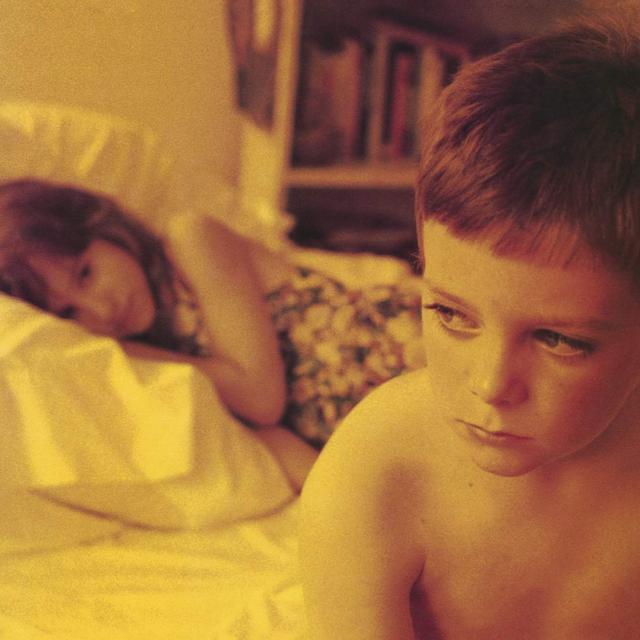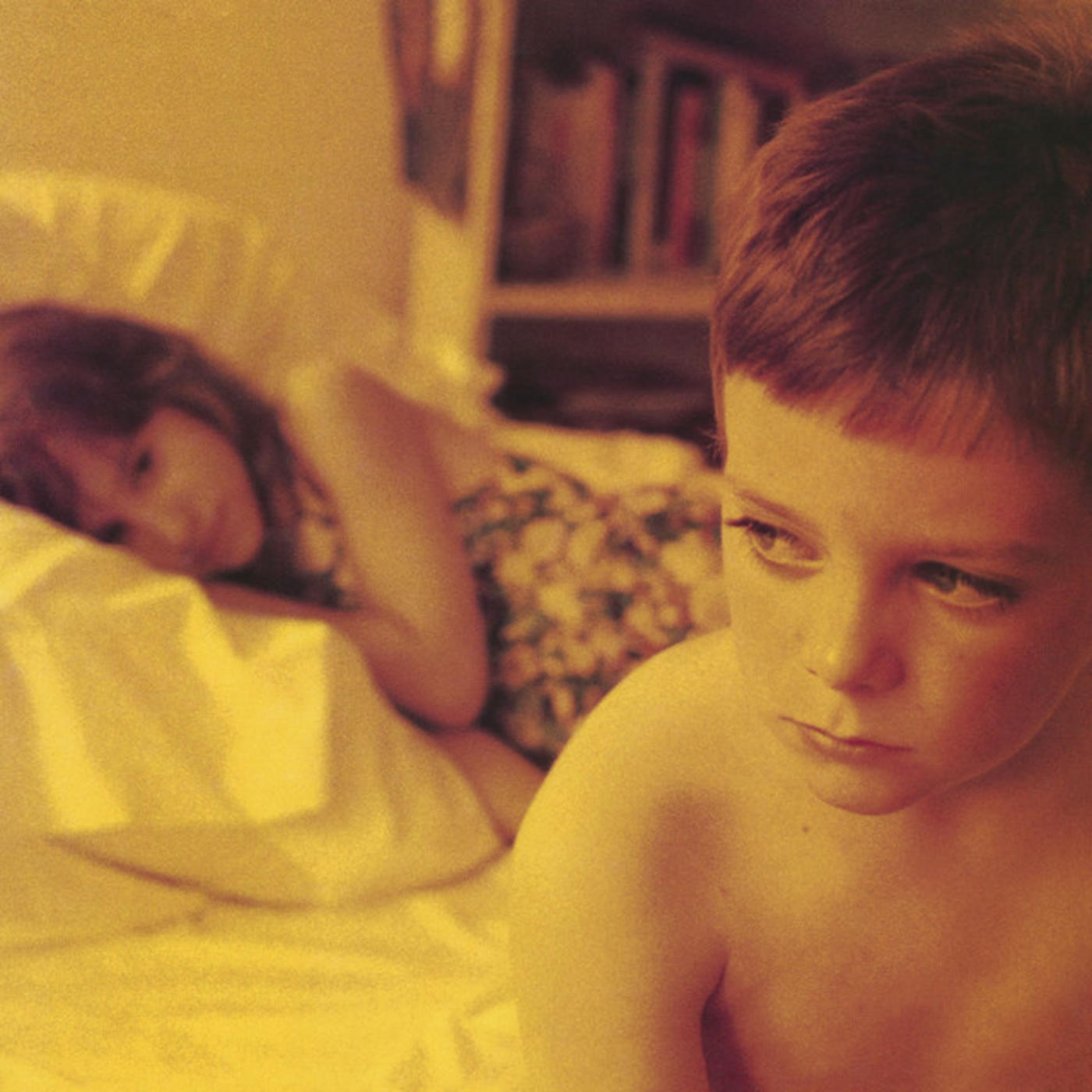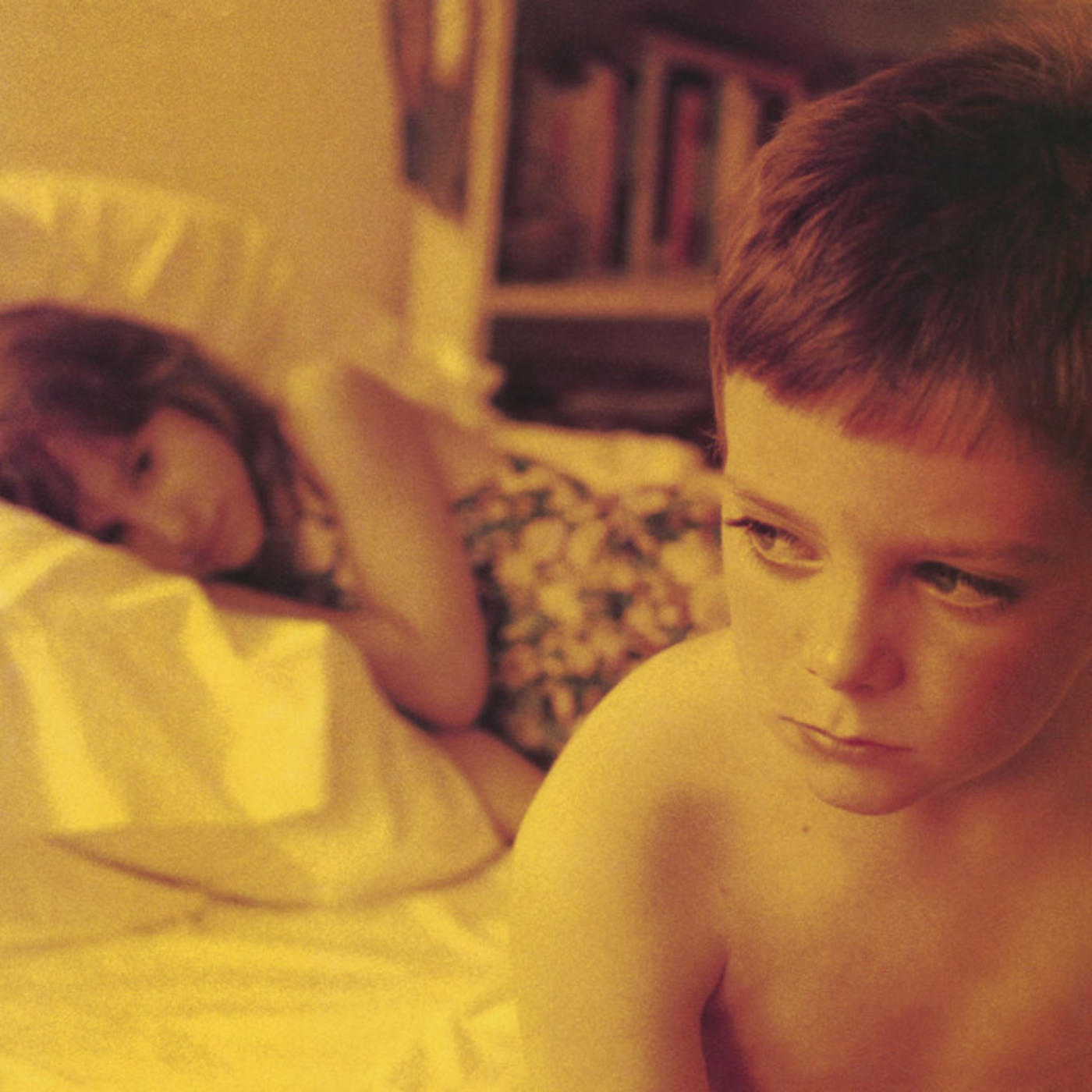Interview: Greg Dulli on Afghan Whigs’ Gentlemen at 21

On October 5, 1993, the band Afghan Whigs, who’d self-released their debut album, 1988’s Big Top Halloween, and then came of age with a pair of albums on Sub Pop Records (1990’s Up in It and 1992’s Congregation), finally made the jump to the big leagues – and a major label – with the release of Gentlemen on Elektra Records. Most bands would’ve used the 20th anniversary of an album as an opportunity to celebrate its legacy, but not Afghan Whigs: they waited a year, hence the October 28 release of Gentlemen at 21, an expanded reissue of Gentlemen which will feature the original album as you remember it on Disc One, along with a second disc filled with demos, B-sides, and live performances.
Greg Dulli, Afghan Whigs’ frontman, kindly agreed to hop on the phone and chat about the original album, although he gave fair warning that his contributions to the reissue were somewhat minimal. “I just nodded, said, ‘Yes,’ ‘Cool,’ or, ‘I wouldn’t do that,’” admitted Dulli, laughing. “That was the extent of my involvement.” Having said that, however, Dulli was quite happy to wrack his brain and reminisce about how they came to Elektra, the process of putting together their major label debut, the opportunity to record in one of the most famous studios in rock ‘n’ roll history, the clause in the band’s contract that could’ve made a filmmaker out of him, and whose contract he copied to get that particular deal.
Rhino: Gentlemen was your debut album for Elektra. What was the band’s path from Sub Pop to the label? Did Elektra pursue the band, or did the band start looking for a major-label deal on their own?
Greg Dulli: After (Nirvana’s) Nevermind hit, there was a feeding frenzy from the major labels, who were looking for guitar bands, and the Sub Pop label was a hot target of a lot of those labels, so we were pursued by…a dozen labels, at least? However many there were back then, I’m sure I talked to all of them. And I let people buy me things and fly me places…all kinds of things. That’s what you did, as a young, poor rock ‘n’ roller, you know? But I liked that Elektra was small, I liked their roster, I liked their history, and I liked Bob Krasnow, who was the president of the label at the time when we came over. His involvement at King Records with James Brown was of interest to me. Elektra was cool, and it seemed like a good place to do what we were about to do, because we kind of knew what was coming.
Gentlemen is the only record that I can remember writing on the road, while we were touring Congregation, which is the longest rock‘n’roll tour I’ve ever done. 200 shows, I think. We just kept on going. We went to Europe probably four times. We just kept going, going, going, and we were writing songs as we go. I was writing pieces of songs along the way and trying them out as I wrote them, a lot of times with nonsense lyrics or just patois, but learning how I wanted them to go and trying them out on people who didn’t know what it was. It was cool to watch reactions to songs. Once people start to kind of get into something… You’re testing it out live, and you’re looking for a reaction, and when you get one, it’s encouraging.
So I think – I know – that “Gentlemen,” “What Jail is Like,” “Be Sweet,” “When We Two Parted,” and “Fountain and Fairfax” were all tried out on the road before they were recorded. Those are just off the top of my head. I might be missing some. Maybe “Debonair,” I can’t remember. But those ones I just named for sure were tried out before we even demoed.
From looking at the track listing for Gentlemen at 21, it looks like you did demos for a bunch of the songs at Ultrasuede Studio, but one of those tracks made it onto the album: “If I Were Going.”
One Ultrasuede track made it on, and that was the only version of “If I Were Going” that we did. “If I Were Going,” yeah, we did that before we even went to Memphis. All of those demos were done before that. But “Now You Know” was written in Memphis, and…I can’t… [Hesitates.] I’m foggy on the verse of “Brother Woodrow,” but I’m pretty sure that the last three songs of the record were all done in Memphis. “I Keep Coming Back” was recorded in Memphis, and we switched instruments on that. I played bass, I think John Curley plays organ, and then Rick and Steve played their respective instruments. But I remember I played bass on that song.
Being a music buff to a somewhat severe extent, presumably you were well aware of the history of Ardent Studios when you went there to record the album.
Oh, sure! And by the way, that organ that we played “I Keep Coming Back” on was Booker T.’s “Green Onions” organ. In addition to the Big Star history, ZZ Top recorded there, Zeppelin… Lots of people had recorded there. Primal Scream was recording Dixie-Narco and what became Give Out But Don’t Give Up at the same time we were recording Gentlemen. And I met Tom Dowd when I was down there. So there was a whole lot of cool stuff going on. Andrew Loog-Oldham was down there producing a Spanish band (Los Ratones Paranoicos, who are actually Argentinean). So history was popping. Walking in the door every day and seeing either Tom or Bobby Gillespie or Andrew… It was quite a time down there at that particular juncture.
Did Primal Scream and Afghan Whigs go out drinking together?
Oh, of course. Absolutely! Oh, yeah, we did. Man, those cats could drink us under the table! I was really sad to hear about Throb’s untimely passing last week. He in particular… [Starts to laugh.] Uh, let’s just say that he made his mark on Madison Avenue. He, uh, may or may not have conceived a couple of kids on that street during that month.
You produced Gentlemen yourself, correct?
I did, yeah.
Was that your first time playing producer in a solo capacity?
I had basically produced Congregation, but in name-credit only, sure. But I produced Congregation as well, so I look at Gentlemen as a continuation of what I had done from that.
Did you go in with any plans for a bigger sound for a major label, or did you just plan to stick with the same sound that you’d always had?
Well, there was really kind of a… [Hesitates.] I really wanted it to sound like it sounds, you know? I mean, it was supposed to sound that way. It’s who I was, it’s who we were as a band… It’s rough. And we recorded it really fast. I think it was recorded and mixed in, like, I don’t know, two and a half weeks? Something like that. Maybe three? No more than three weeks to be record and mix, I’m pretty sure. And then I went back and remixed “Jail” and “Debonair” maybe a month later, I think, because the label wanted a different mix of those. But when I listened to it a couple of months ago… It is what it is. And it’s what I was. It brought back memories of who I was then.
Is that good or bad?
I mean, it’s… It’s neither. It’s life.
How did you guys come to the decision to cover “I Keep Coming Back”? Not that you hadn’t done plenty of covers in the past, but what led to that particular selection?
That one was a song that I played a lot in my room during that time of my life, and I think I wanted to commemorate it. That song was, like, my friend. And I wanted to include it. And it really did have an elegiac kind of ending to all of the nastiness, y’know what I mean? There are a couple of turns on the record. “My Curse” would be the first one, and I think “I Keep Coming Back” is the second one, continuing on into “Brother Woodrow,” and then “Brother Woodward” gives it kind of a… It’s almost like a film-score ending. So those three moments on the record, it kind of took it out of “rock record” and made it a bit more of a cinematic experience for me.
Which reminds me of something I was going to ask a minute ago: on Wikipedia, in regards to when you signed to Elektra, it says that it came “following a bidding war that resulted in a contract so lucrative, it featured a clause that allowed for the funding of a Dulli-scripted feature film that ultimately was never made.”
Right. That’s true.
Wow. That, uh, must’ve been quite a contract. So, what, were you just testing the waters to see exactly how much you could get out of the deal?
I had a friend of mine who worked at Warner Brothers, and I had him pull Prince’s contract, and I went through it and used elements of Prince’s contract with Warner Brothers.
All right, I have to admit: that’s pretty cool. Were you disappointed that you ultimately weren’t able to make the film, or did you even make any real headway on it?
No, we actually put a lot of effort into it, and it just got kind of… [Hesitates.] I learned that that’s a different game, without the same immediacy. The reason I got into rock ‘n’ roll in the first place was because I could in essence write, produce, and star in my own movies – if you know what I’m saying, and for lack of a better comparison – and I was in control. The movie business is just a different animal, and I was ill-prepared for the realities of that situation. I was in there with some good people, some seasoned movie people, but the script never got done, and then a couple of people passed away, and then I just… I just walked away from it.
The original emphasis track, if you will, for Gentlemen was “Debonair.” Did you see that as the representative track for the album, or was there another track that you thought would’ve been a better gateway drug for people?
No, I think “Debonair” is a great song, and I thought it was a great way to introduce people to the experience. It kind of, in a lot of ways, contained the overture moment, which began in “If I Were Going,” and it had that Jackson Five feel that I have been weaving in and out of my entire life. [Laughs.] So I thought it was good. And I’m relatively sure that I signed off on “Debonair” being the lead track.
You wrote the majority of the album’s songs on your own, but you did collaborate on a couple of them – “Be Sweet” and “When We Two Parted” with Rick McCollum. Did you guys have any sort of regular songwriting regiment, or did you just team up when the mood struck you?
I loved writing with Rick. Rick was great with riffs and would show me a riff, and I’d kind of hammer a song out of it, or I’d add the bridge or the chorus. “Be Sweet,” that’s a riff I would never come up with, you know? I remember when he played that for me. I was, like, “Wow…” I added the ending, and I played the solo on “Be Sweet,” and…I think that’s my first recorded guitar solo. And “When We Two Parted,” I remember being kind of surprised at the country style. Rick never really struck me as a country music guy. [Laughs.] And I loved it! But the verse of “When We Two Parted” was Rick’s, and it’s a beautiful riff. I really enjoyed working on that with him.
You guys had worked with Marcy Mays prior to having her sing on “My Curse,” but how did you first cross paths with her?
We had been fans of Scrawl since Plus, Also, Too, which I think was their first record, and we used to cover their song “Green Beer.” And then we played shows together, and then we became friends, and we would go to heavy metal cover band shows together. [Laughs.] Marcy and I shared an interest in early Ted Nugent records, and we’re similarly horrified by the way Ted turned out, but we found solace in the fact that “Stranglehold,” which was a favorite song for both of us, was sung by Derek St. Holmes, which made it okay.
That’s some consolation, anyway.
Absolutely! Derek St. Holmes is a great single, and “Stranglehold” – regardless of your feelings about Ted Nugent –is a fucking jam. [Laughs.] Marcy is from West Virginia. Ravenswood, West Virginia. And that’s very near where many of my family members live. I have a strong West Virginia background in my family, so we bonded over that as well. I remember when I first heard Scrawl sing “Rocky Top.” That was, like, a moment that I took note of a fragility in her voice, one that she exploited with us in “My Curse.” She’s just a really heart-on-her-sleeve person. I had admired her from the first time I heard her, and as I got to know her, she’s just one of my favorite people. And when it came time to do that song, she was the obvious choice to be the foil there.
Looking at the second disc of Gentlemen of 21, all of the additional tracks from the What Jail is Like EP are in the mix, including the covers of “Mr. Superlove,” “The Dark End of the Street,” “Little Girl Blue,” and the medley of “My World is Empty without You” and “I Hear a Symphony.” Were you always trying to find something new from the archives to cover on the road?
Well, “My World is Empty” I had known since I was a child, but I remember hearing it when I was living in L.A.. There was this station that played old R&B songs. Actually, the woman who plays the DJ in The Warriors (Lynne Thigpen) was one of the DJs on that station, and she just had a fabulous voice. But I heard “My World Is Empty” one afternoon, and I was really struck by the lyrics, and I think I was probably melancholic a lot of the time then. I was in a relationship spiral at that point, and there was something about that song that really popped out for me. And then whenever I’m playing songs live, I can chain, like, 20 songs together based on a beat, a lyric, a similarity that I’ve heard, so that’s how… I think we were playing “My World Is Empty,” and I realized I could move into “I Hear a Symphony.”
As far as the album itself, you said you re-listened to it recently. Does it hold up well for you?
Uh, yeah, I wouldn’t be doing this or performing songs from Gentlemen unless it held up for me. Or…I’ll put it to you this way: we’re not reissuing Big Top Halloween! [Laughs.]
Afghan Whigs are still a going concern, of course, to the point where you guys put out a new album earlier this year, Do to the Beast. Have you already started writing material for the next one?
I don’t write a ton on the road. I have things that I’m always percolating on, but…for instance, I’m playing songs right now that weren’t even songs a year ago. So I’m still kind of… [Hesitates.] When I go out on tour, I kind of like to enjoy exploring the material that I’ve just written, y’know what I mean? When this all slows down, I’ll wade back into songwriting. I’m fooling around with a couple of covers right now, just to play, just to have something to throw into the show, because we still have probably another 40 or 45 shows to go, and I like to try things during the show. There were a couple of things that didn’t get released, and there are a couple of things that I’m still working on, but I’m keeping it kind of open-ended there.
Lastly, as far as Gentlemen goes, I think we’ve confirmed that it holds up well for you, but is there anything at all on the album that you hear now that makes you go, “I wish I’d done that differently”?
No. I mean, there’s things that are getting played slightly differently live, just because that’s what happens. And that’s cool. You know, it’s like finding a little jazz moment in the middle of one of your songs, and you’re, like, “Oh, I can do this!” And maybe no one even notices but you, but it’s still cool. We’ve played every song on Gentlemen on this tour, and that’s what I wanted. I wanted to be able to play all the songs live and have them come alive while they were being played and have people enjoy them…and that’s been the case. I’m really blessed that our fans want to hear it all. They want to hear everything. And to be able to play all this stuff and have everybody enjoy it along with us? It’s more than I could’ve asked for.


